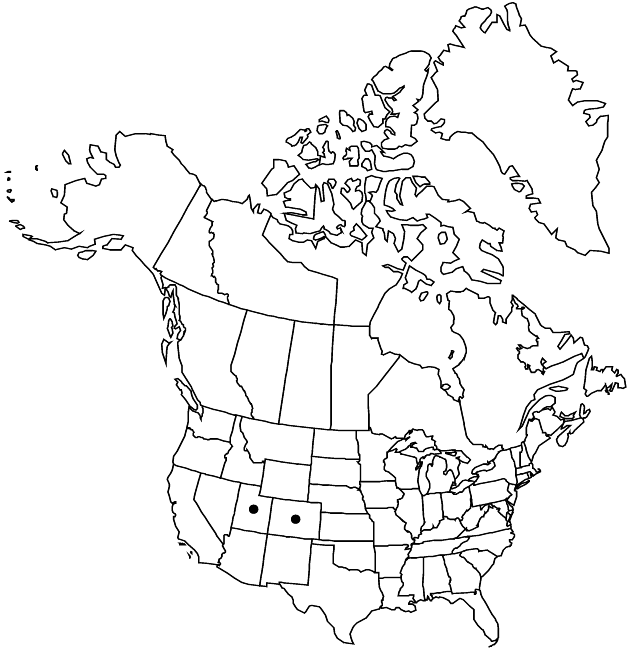Difference between revisions of "Encelia nutans"
Zoë 2: 230. 1891.
Endemic
Synonyms: Enceliopsis nutans (Eastwood) A. Nelson
imported>Volume Importer |
imported>Volume Importer |
||
| Line 54: | Line 54: | ||
|publication year=1891 | |publication year=1891 | ||
|special status=Endemic | |special status=Endemic | ||
| − | |source xml=https:// | + | |source xml=https://bitbucket.org/aafc-mbb/fna-data-curation/src/2e0870ddd59836b60bcf96646a41e87ea5a5943a/coarse_grained_fna_xml/V19-20-21/V21_291.xml |
|tribe=Asteraceae tribe Heliantheae | |tribe=Asteraceae tribe Heliantheae | ||
|subtribe=Asteraceae (tribe Heliantheae) subtribe Ecliptinae | |subtribe=Asteraceae (tribe Heliantheae) subtribe Ecliptinae | ||
Latest revision as of 20:11, 5 November 2020
Perennials, 10–25 cm (roots swollen, 6–10 cm). Stems ± subterranean (except peduncles). Leaves basal; petioles 20–35 mm; blades green, broadly ovate, 30–40 mm, faces glabrous or substrigose (sometimes rugose). Heads borne singly (nodding in fruit). Peduncles hairy. Involucres 12–22 mm. Phyllaries lanceolate. Ray florets 0. Disc corollas yellow, 6–8 mm. Cypselae 7–12 mm; pappi usually 0, rarely of 2 bristlelike awns. 2n = 36.
Phenology: Flowering Apr.
Habitat: Flat areas with heavy soils
Elevation: 1300–1900 m
Discussion
Encelia nutans shares the apically notched and glabrous-faced cypselae of the genus, but its geophyte habit, especially the ephemeral nature of its aboveground parts, is unique in either Encelia or Enceliopsis.
Selected References
None.
Lower Taxa
None.
